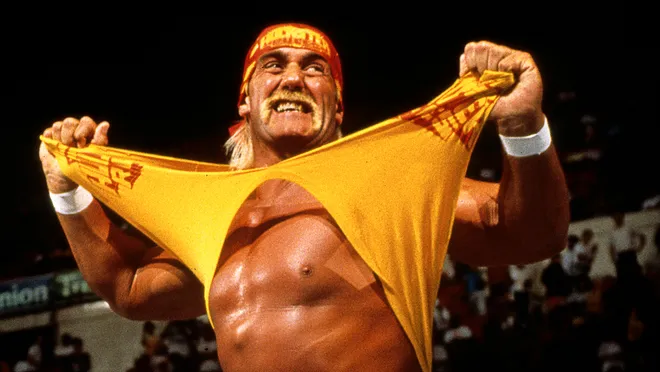Washington: Terry Gene Bollea, better known to the world as Hulk Hogan, the bombastic, larger-than-life showman who became the face of professional wrestling and a global pop culture icon, passed away on July 24, 2025, in Clearwater, Florida, from cardiac arrest. He was 71.
Born on August 11, 1953, in Augusta, Georgia, and raised in Tampa, Florida, Hogan was first a musician before becoming a wrestling legend. But it wasn’t a guitar or a bass that brought him global fame—it was the unmistakable sound of a body slam.
Before he became the red-and-yellow-clad embodiment of “Hulkamania,” Hogan was just another aspiring wrestler facing injuries and long odds. His transformation into Hulk Hogan—a name concocted by Vince McMahon Sr.—was the beginning of something seismic. Combining comic-book heroism with brute charisma, Hogan became the central figure of a wrestling revolution.
When he joined the World Wrestling Federation (WWF) in 1983, the industry was regional and rowdy. When he left, it was mainstream, family-friendly, and global. Hogan’s signature mustache, bandana, and “24-inch pythons” became the symbols of a movement. From his legendary body slam of André the Giant at WrestleMania III in 1987 to six WWE Championship wins and back-to-back Royal Rumble victories in 1990 and 1991, Hogan was more than a wrestler—he was a phenomenon.
In 1994, Hogan shocked fans by reinventing himself as the villainous “Hollywood” Hogan in WCW, where he led the New World Order (nWo) alongside Scott Hall and Kevin Nash. His heel turn was a masterstroke, igniting the “Monday Night Wars” and helping WCW dominate the ratings. He would claim the WCW World Heavyweight Championship six times, including the longest reign in the promotion’s history.
Outside the ring, Hogan’s cultural impact was just as potent. His role as Thunderlips in Rocky III (1982) introduced him to Hollywood. He followed up with a string of action-comedy films and later starred in the reality TV show Hogan Knows Best (2005–2007), giving fans an intimate—sometimes too intimate—look at life beyond the ring.
His 1995 novelty album Hulk Rules charted on Billboard’s Top Kid Audio list. He lent his voice to animated series, launched entrepreneurial ventures like Real American Beer, and was preparing to debut a new wrestling promotion, Real American Freestyle, this August.
But Hogan’s life was not without controversy. In 1994, he testified in the steroid trial of Vince McMahon, admitting to steroid use. In 2015, a leaked sex tape revealing racist remarks led to his temporary removal from WWE’s Hall of Fame. A lawsuit backed by Peter Thiel against Gawker Media over the tape resulted in a $140 million verdict, later settled for $31 million, effectively bankrupting the media outlet.

Despite public fallouts, Hogan was reinstated to the Hall of Fame in 2018, and inducted again in 2020 as a member of the nWo, underscoring both his individual and collective legacy.
In recent years, Hogan remained in the public eye—sometimes controversially—like when he tore off his shirt at the 2024 Republican National Convention to reveal a Trump/Vance tank top, shouting, “Let Trumpamania run wild, brother!” Still, he continued to symbolize a bygone era of wrestling showmanship—unfiltered, unforgettable, and unapologetically theatrical.
Hogan’s health had been a concern, with multiple back and neck surgeries, including a procedure just two months before his passing. Rumors of a coma were denied by his wife, Sky Daily, whom he married in 2023. “His heart was strong,” she said. “This came as a shock to all of us.”
Hogan is survived by Sky, and by his children Brooke and Nick, from his first marriage to Linda Claridge. His death sparked an outpouring of tributes. Piers Morgan called him “the most iconic wrestler in history,” while Vice President J.D. Vance hailed him as a “great American icon.” WWE said in a statement, “One of pop culture’s most recognizable figures, Hogan helped WWE achieve global recognition in the 1980s.”
For millions, Hulk Hogan wasn’t just a wrestler. He was a hero in red and yellow. He was power, pride, and charisma rolled into one. He was the soundtrack of a generation’s childhood, and a reminder that in the ring—or in life—you can always make a comeback.
As he often said: “Hulkamania will live forever.”
And so it will.










